10 Best Foods For A Healthy Gut System
By Dr. Malavika Athavale +2 more

Get,

to manage your symptom
Get your,


4 Cr+ families
benefitted

OTP sent to 9988776655



You’ve successfully subscribed to receive
doctor-approved tips on
Whatsapp

Get ready to feel your best.

Hi There,
Download the PharmEasy App now!!


Register to Avail the Offer
Send OTPBy continuing, you agree with our Privacy Policy and Terms and Conditions

Hi There,
Sign up on PharmEasy now!!
Trusted by 4 crore+ families

OTP sent to 9988776655



You have unlocked 25% off on medicines




Code: NU25
By Dr. Malavika Athavale +2 more
Table of Contents
Even a minor digestive issue like bloating can leave you feeling uncomfortable. Poor eating habits, heavy meals, alcohol consumption, and irregular mealtimes can disrupt the natural balance of your gut.
A healthy gut plays a vital role in your overall well-being. It helps absorb nutrients from food and remove waste products from the body. Some even refer to the gut as the “second brain” because of its strong connection to mental and physical health1.
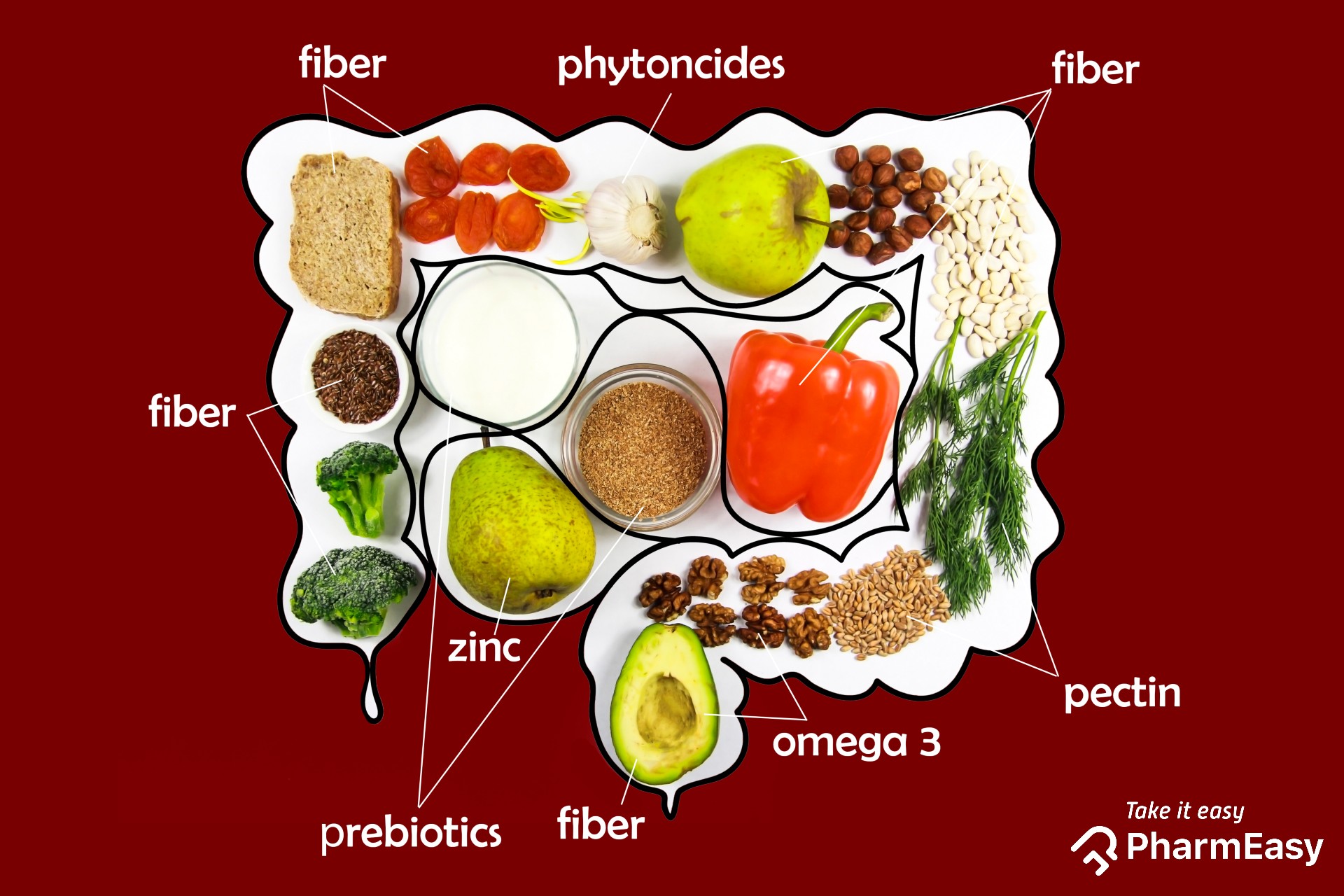
The health of your gut largely depends on the balance of bacteria in your intestines. For the gut microflora to thrive, your intestines need the right environment, for example, the colon (part of the large intestine) usually has a pH of around 6.7 to 6.9, which supports the growth of beneficial bacteria2.
This microflora is essential for smooth digestion and may help support immune function. Since your gut health is directly affected by your diet, choosing the right foods is key to maintaining balance.
The easiest way to support gut health is by regularly including gut-friendly foods in your meals, especially high-fibre foods and fruits that promote better digestion.
Here’s a closer look at some of the best types of foods for your digestive system:
Whole grains have been a part of our diet for thousands of years. They are rich in fibre, antioxidants, and essential nutrients. The fibre in whole grains acts like a prebiotic, it helps feed the good bacteria in your gut. Whole grains can also help relieve constipation by softening the stool. It is advisable to consult a nutritionist before increasing your intake of whole grains3.
Vegetables like spinach, broccoli, and kale are rich in dietary fibre, vitamins, minerals, and iron. Adding more leafy greens to your diet may support better digestion and overall gut function4.
People with irritable bowel syndrome or sensitive digestion may benefit from lean proteins like chicken or white-fleshed fish. These are easier to digest and less likely to trigger intestinal discomfort compared to high-fat foods, which can cause gut contractions and bloating5.
Reducing sugar can benefit gut health. Some fruits like mangoes, berries, and apples contain higher levels of natural sugars, which may cause bloating in some individuals. Opt for fruits lower in sugar if you’re prone to digestive issues6.
While not technically a food, water is essential for digestion. It helps your body absorb nutrients and flush out waste. Staying well-hydrated supports your gut and overall health7.
The digestive system of most people does not cause an issue with spicy meals. However, few people discover that spicy food may upset their stomachs. Heartburn may not only be caused by really spicy meals, like chillies but it may also be triggered by milder yet flavourful foods like garlic and onion. I suggest you avoid spicy meals if they cause you to have heartburn, stomach pain, or diarrhoea7.
Dr. Rajeev Singh, BAMS
Here are some gut-friendly foods that can support digestion and a balanced gut environment.

Yogurt is rich in probiotics, live, friendly bacteria that can support gut health. Made by fermenting milk, yogurt can aid digestion and may promote a healthy balance of gut bacteria8. You can have yogurt as breakfast or combine it with fruits for tasty fusion food.
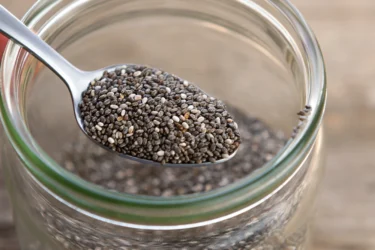
Chia seeds are a great source of dietary fibres. Once consumed, they form a gel-like substance in the stomach that acts as a prebiotic, supporting the growth of beneficial gut bacteria. Their fibre content may also help relieve constipation9.
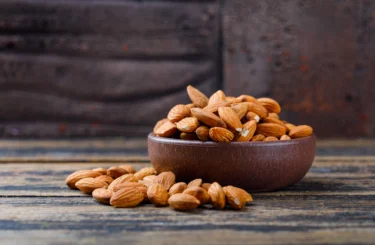
Almonds contain vitamin E, healthy fats, and fibre, all of which contribute to digestive health. A handful of almonds daily can be a nutritious, gut-friendly snack10.
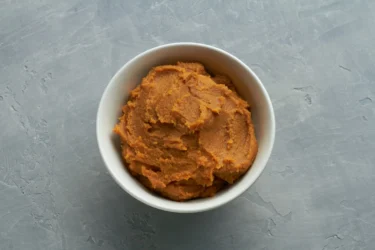
Miso, made from fermented soybeans, contains probiotics that may help support digestion and maintain gut balance.

Olive oil contains healthy fats and antioxidants called polyphenols. These may help reduce gut inflammation and support a healthy microbiome11.
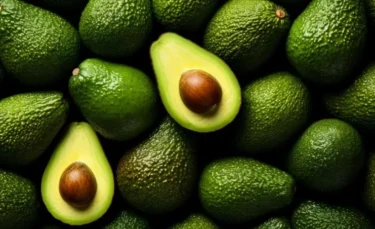
Avocados are high in fibre and important nutrients. They’re low in sugar and gentle on the stomach and may help improve digestion and reduce bloating11.
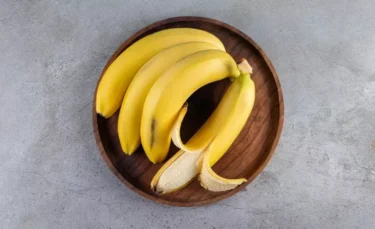
Bananas are fibre-rich and low in fruit sugar. They also contain inulin, a type of fibre that supports good bacteria in the gut. Bananas may also help soothe the digestive tract11.
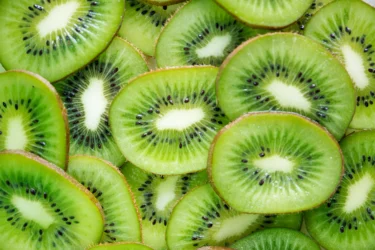
Kiwi contains an enzyme called actinidin, which helps break down proteins and supports digestion. It’s also rich in fibre and may act as a natural laxative11.

Apricots are rich in vitamin C and fibre. They help support regular bowel movements, which helps to avoid constipation and may improve colon health. They also support a healthier immune system.

This crunchy, sweet-sour fruit can be a solution for your tummy problems. Guava is one of the richest sources of fibre and vitamins and may help with regular bowel movements. Its seeds also act as a natural laxative, aiding smoother digestion12.
Caffeine-based beverages, such as coffee, colas, tea, and other fizzy drinks, may increase stomach acid, which in some people may cause heartburn. Fizzy beverages in general have a tendency to make people feel bloated, which may also cause heartburn. In my experience, selecting a non-carbonated, caffeine-free beverage may help to reduce your risk of experiencing digestive issues, such as herbal teas, milk, and plain water. If you can’t live without your coffee or tea, try to stick to only one or two cups each day and make sure you don’t drink it empty stomach7.
Dr. Smita Barode, B.A.M.S, M.S.
Also Read: Bhumi Amla: Uses, Benefits, Side Effects & More!
Improving gut health isn’t just about eating the right foods, it’s also about avoiding the wrong ones. Some foods can disrupt gut bacteria or irritate your digestive system.
Here are a few to watch out for:
When it comes to digestive health, certain foods may not suit certain people. Heartburn may be brought on by acidic foods such as tomatoes, citrus fruits, salad dressings, and carbonated beverages, while wheat and onions may result in irritable bowel syndrome. Additionally, if you are lactose intolerant, you may develop gas and diarrhoea after consuming milk or other dairy products, such as cream, cheese, yoghurt, and chocolate. I strongly recommend avoiding meals and beverages that make your digestive issues worse. To determine which foods contribute to your symptoms, keep a diet journal and note the food eaten with the corresponding symptoms developed that day7.
Dr. Siddharth Gupta, B.A.M.S, M.D (Ayu)
Also Read: Worst Foods for Diarrhea, According to Experts
Maintaining a healthy gut starts with simple, mindful changes to your daily meals. Choosing fibre-rich and probiotic foods like yoghurt and leafy greens can help in digestion, improve nutrient absorption, and support overall well-being. At the same time, avoiding common triggers such as processed foods and excessive alcohol can help your digestive system function more smoothly and comfortably, reducing the chances of bloating and discomfort.
Also Read: 12 Ways How Avocado (Butter Fruit) Can Benefit Your Overall Health And Skin
Disclaimer: The information provided here is for educational/awareness purposes only and is not intended to be a substitute for medical treatment by a healthcare professional and should not be relied upon to diagnose or treat any medical condition. The reader should consult a registered medical practitioner to determine the appropriateness of the information and before consuming any medication. PharmEasy does not provide any guarantee or warranty (express or implied) regarding the accuracy, adequacy, completeness, legality, reliability or usefulness of the information; and disclaims any liability arising thereof.
Comments

Leave your comment...
You may also like
Comments